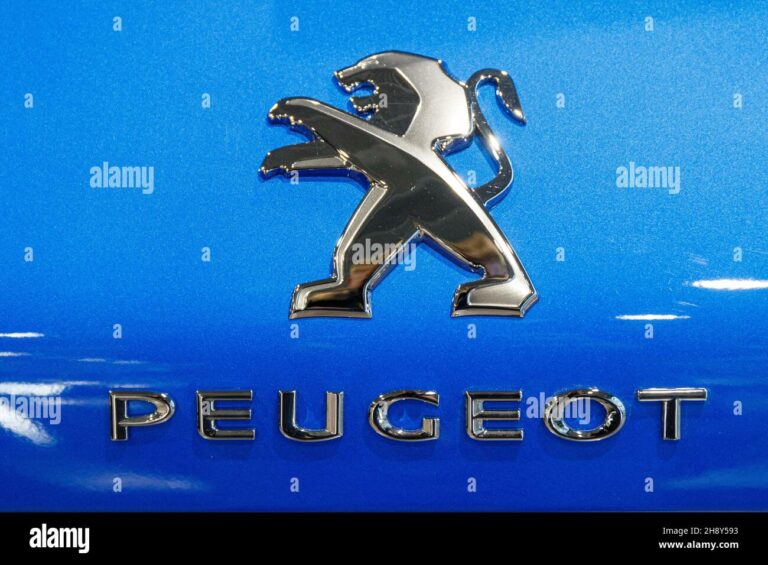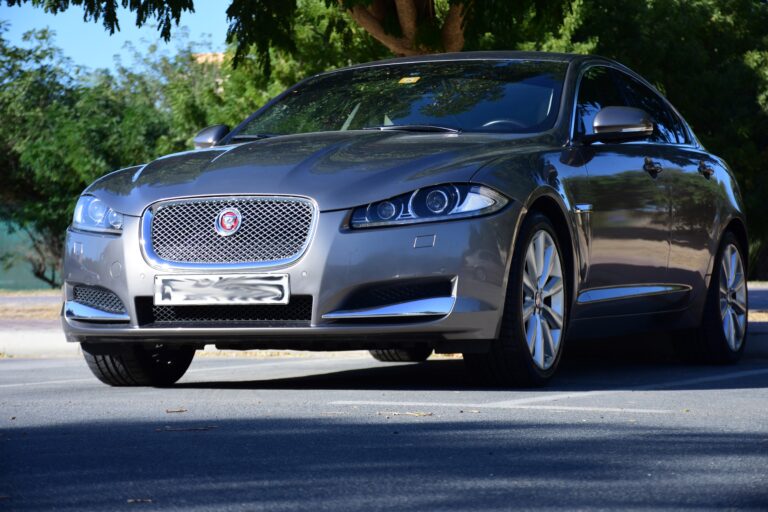What Is A Branded Title For A Car? Unveiling the Truth Behind Vehicle History
What Is A Branded Title For A Car? Unveiling the Truth Behind Vehicle History cars.truckstrend.com
Purchasing a car is often one of the most significant investments an individual makes, second only to buying a home. Most buyers envision a gleaming vehicle with a pristine history, often referred to as a "clean title." However, the automotive market also presents a category of vehicles whose past is marked by significant events: cars with "branded titles." Far from a simple administrative detail, a branded title is a permanent mark on a vehicle’s record, signaling a specific, often severe, incident in its life that can profoundly impact its value, safety, and future ownership experience.
This comprehensive guide aims to demystify branded titles, offering an in-depth look at what they are, why they exist, the various types you might encounter, and the critical considerations for anyone thinking about buying or selling such a vehicle. Understanding branded titles is not just about identifying a potential deal; it’s about making an informed decision that protects your investment, your safety, and your peace of mind.
What Is A Branded Title For A Car? Unveiling the Truth Behind Vehicle History
Understanding the Basics: What Exactly is a Branded Title?
At its core, a car title is a legal document establishing proof of ownership. A "clean title" indicates that the vehicle has never been declared a total loss by an insurance company, nor has it suffered severe damage or other significant issues that would diminish its value or safety. It’s the gold standard, suggesting a relatively uneventful history.
In contrast, a branded title is a designation affixed to a vehicle’s certificate of title by a state’s Department of Motor Vehicles (DMV) or equivalent agency. This brand serves as a permanent public record, alerting potential future owners that the vehicle has experienced a specific event or condition that significantly impacts its value, structural integrity, or operational safety. The purpose of branding titles is primarily consumer protection, ensuring transparency about a vehicle’s past and preventing fraudulent sales where damaged or compromised vehicles are passed off as clean.
The events that lead to a branded title are typically severe and often involve an insurance claim where the cost of repairs exceeds a certain percentage of the vehicle’s actual cash value (ACV), or specific legal definitions within state statutes. These events could range from catastrophic accidents to natural disasters, or even a history of persistent mechanical failures.
Common Types of Branded Titles
Different states may use slightly varied terminology, but the core categories of branded titles are generally consistent across the United States. Understanding these types is crucial for interpreting a vehicle’s history.
/filters:quality(60)/2020-11-20-What-Is-a-Branded-Title-inline-table.png)
Salvage This is perhaps the most common and widely recognized branded title. A salvage title is issued when an insurance company declares a vehicle a "total loss" due to significant damage from an accident, fire, flood, theft, vandalism, or other perils. A total loss declaration means the cost to repair the vehicle to its pre-damage condition exceeds a certain percentage of its actual cash value (ACV) – typically 70-80%, though this varies by state and insurer. A vehicle with a salvage title is generally not roadworthy and cannot be legally registered or driven until it has been repaired and re-titled.
-
Rebuilt or Reconstructed Once a vehicle with a salvage title has been repaired and inspected by the state (to ensure it meets safety and roadworthiness standards), its title can be converted to a "rebuilt" or "reconstructed" brand. This indicates that the vehicle was previously a salvage vehicle but has now been restored to an operable condition. While it signifies that the vehicle is roadworthy, the "rebuilt" brand remains permanently on the title, signaling its past total loss status.
-
Flood Specifically issued for vehicles that have sustained significant damage from water, such as those submerged in floods. Water damage can be particularly insidious, leading to long-term electrical problems, corrosion, mold, and issues with lubricants and fluids that are difficult to detect and repair comprehensively. A flood title alerts buyers to this specific, often challenging, type of damage.
-
Lemon Title (or Manufacturer Buyback): A "lemon" title is applied to vehicles that a manufacturer has repurchased from the original owner due to persistent, unrepairable defects under state "lemon laws." These laws are designed to protect consumers from vehicles that fail to meet quality and performance standards despite multiple repair attempts. While the defects may have been fixed before resale, the lemon brand indicates a history of significant manufacturing flaws.

-
Odometer Rollback/Tampered This brand signifies that the vehicle’s odometer has been illegally altered to display fewer miles than the vehicle has actually traveled. This is a federal crime due to its fraudulent nature. An odometer rollback title is a serious red flag, indicating potential dishonesty and making it impossible to ascertain the vehicle’s true wear and tear.
-
Junk or Scrap Similar to a salvage title, but often indicating an even more severe level of damage. A junk title means the vehicle is considered irreparable and fit only for parts or scrap metal. It cannot be legally driven or registered in this state.
-
Hail Damage In areas prone to severe hailstorms, vehicles can sustain extensive body damage (dents, broken glass) that, while not always affecting mechanical operation, can significantly reduce their aesthetic and market value. If the repair cost exceeds a certain threshold, a "hail damage" brand might be applied.

The Pros and Cons of Buying a Car with a Branded Title
Deciding whether to purchase a branded title car requires a careful weighing of potential benefits against significant risks.
Potential Advantages:
- Significantly Lower Purchase Price: This is the primary allure. Branded title vehicles are typically sold at a substantial discount compared to their clean-title counterparts, often 20% to 50% less, or even more, depending on the brand type and severity of the original damage. This can make higher-end models or newer vehicles more accessible.
- Potential for Good Value (If Repaired Properly): If the vehicle was professionally repaired using quality parts and the damage was cosmetic or easily rectifiable, you might acquire a well-functioning vehicle for a fraction of the cost.
- Opportunity for a "Project Car": For experienced mechanics or enthusiasts, a branded title car can be an affordable base for a restoration project or a source of parts.
Significant Disadvantages and Risks:
- Difficulty Obtaining Financing: Many lenders are hesitant to finance branded title vehicles due to their reduced collateral value and increased risk. If financing is available, interest rates might be higher.
- Challenges with Insurance: While it’s usually possible to get liability insurance, obtaining comprehensive or collision coverage can be difficult or more expensive. Insurers may refuse to cover certain types of damage (e.g., further flood damage on a flood-titled car) or may only pay out the reduced "branded title" value in the event of a future claim.
- Significantly Lower Resale Value: The branded title is permanent. When you go to sell the car, you will face the same challenges and steep depreciation that you benefited from when buying it. Many buyers are wary of branded titles, severely limiting your potential market.
- Potential for Hidden Problems: Unless you are an expert, it’s challenging to ascertain the full extent of past damage and the quality of repairs. Frame damage, electrical issues from water, or lingering mechanical faults might not be immediately apparent.
- Safety Concerns: If repairs were not conducted to professional standards, the vehicle’s structural integrity or safety systems (e.g., airbags) could be compromised, posing a risk in future accidents.
- Limited Warranty: Branded title vehicles are typically sold "as-is," without any warranty from the seller, and often lose any remaining manufacturer’s warranty.
Key Considerations Before Buying a Branded Title Car
If you are contemplating purchasing a branded title vehicle, thorough due diligence is paramount. This is not a purchase to rush into.
-
Obtain a Comprehensive Vehicle History Report: Services like CarFax or AutoCheck are essential. These reports can detail the type of branded title, the date it was issued, and often the nature of the event that led to the branding (e.g., specific accident details, flood events, odometer discrepancies). Cross-reference information with the seller’s claims.
-
Mandatory Pre-Purchase Inspection (PPI) by an Independent Mechanic: This is perhaps the single most critical step. Do not rely on the seller’s assurances or a quick visual check. Hire a reputable, independent mechanic (ideally one experienced with branded title vehicles or the specific type of damage involved, e.g., a body shop for collision damage) to conduct a thorough inspection. They can identify hidden damage, assess the quality of repairs, and check for structural integrity, electrical issues, and mechanical soundness.
-
Request Repair Documentation: Ask the seller for all repair receipts, invoices, and even photos of the damage before and after repairs. Reputable sellers, especially those specializing in rebuilt vehicles, should have this readily available. Lack of documentation is a major red flag.
-
Verify State Regulations: Research your state’s specific laws regarding branded titles, including requirements for registration, inspections, and any disclosures. Some states have stricter rules than others.
-
Contact Your Insurance Provider and Lender: Before you commit, get quotes for insurance (especially comprehensive/collision) and discuss financing options with your bank or credit union. Understand their policies regarding branded titles and how a claim might be handled.
-
Assess the Seller’s Reputation: If buying from a dealer, check their reviews and reputation. If buying from a private seller, ensure they are transparent and willing to provide all requested information and allow inspections.
-
Consider Your Long-Term Plans: Are you planning to keep the car for many years? Or do you anticipate selling it relatively soon? The difficulty of reselling a branded title car can be a significant hurdle.
The Process of Re-titling (Salvage to Rebuilt)
While the focus of this article is understanding branded titles from a buyer’s perspective, it’s useful to briefly touch on how a salvage title becomes a rebuilt title. After a vehicle is declared salvage, the owner or a subsequent buyer can choose to repair it. Once repairs are completed, the vehicle must undergo a stringent state inspection. This inspection verifies that the repairs meet safety standards, that stolen parts were not used, and that the vehicle is roadworthy. If it passes, the state issues a new title, branded as "rebuilt" or "reconstructed," allowing it to be registered and driven legally. The original "salvage" history, however, remains permanently linked to the vehicle’s VIN.
Practical Advice and Actionable Insights
- Educate Yourself Thoroughly: The more you know about the specific type of branding and its implications, the better equipped you’ll be to make a decision.
- Budget for the Unexpected: Even with a thorough inspection, branded title cars carry a higher risk of unexpected mechanical or electrical issues. Set aside a contingency fund for potential future repairs.
- Negotiate Aggressively: The low price is the main advantage. Don’t be afraid to negotiate even further, especially if the inspection reveals minor issues.
- Understand Your Skill Level: If you’re not mechanically inclined or don’t have a trusted mechanic, the risks associated with a branded title car increase significantly.
- Prioritize Safety: Never compromise on safety. If an inspection reveals structural damage that hasn’t been perfectly repaired, walk away. No discount is worth your life.
- Consider Alternatives: Sometimes, a slightly older or less equipped clean-title vehicle might be a safer and ultimately more cost-effective option than a heavily discounted branded-title car with a dubious past.
Table: Branded Title Types and Their Typical Implications
| Branded Title Type | Definition | Typical Value Reduction (vs. Clean Title) | Key Considerations for Buyers |
|---|---|---|---|
| Salvage Title | Declared "total loss" by insurer due to severe damage (accident, flood, fire, theft, etc.) where repair cost exceeds ACV. Not roadworthy. | 50-80% or more (often sold for parts) | Avoid driving. Primarily for parts or extensive rebuilding. Requires significant investment, state inspection, and re-titling to become roadworthy. Difficult to insure/finance until rebuilt. |
| Rebuilt/Reconstructed | Previously salvage, now repaired and inspected by state to be roadworthy. Permanent record of prior total loss. | 20-50% | Crucial Inspection. Quality of repairs is everything. Get detailed repair documentation. Insurability/finance still challenging. Resale value significantly impacted. Risk of hidden long-term issues (e.g., electrical after flood, frame after collision). |
| Flood Title | Significant water damage (submersion). Often leads to long-term electrical, mold, and corrosion issues. | 30-60% | High Risk. Water damage is notorious for hidden, insidious problems that manifest over time. Thorough inspection, especially electrical systems and interior for mold/odors, is critical. Insurance may be difficult or limited for future water damage. |
| Lemon/Manufacturer Buyback | Manufacturer repurchased due to persistent, unfixable defects under "lemon laws." | 15-30% | Understand the Defect. What was the original issue? Has it been truly resolved? Get all repair records. While potentially less structural risk than accident cars, the history of chronic issues can be concerning. May or may not still be under manufacturer warranty for other issues. |
| Odometer Rollback/Tampered | Odometer illegally altered to show fewer miles. | 40-70% | Extreme Caution. Indicates fraud. Impossible to determine true mileage and wear. Avoid unless you’re buying it for parts or are fully aware of potential high mileage issues. Difficult to insure/finance due to uncertainty. Legal ramifications for the seller if proven. |
| Junk/Scrap Title | Beyond repair, designated for parts or crushing. | 70-90% (near zero value as a vehicle) | Not for Road Use. Cannot be registered or driven. Only suitable for parts or as scrap metal. Do not buy with the intention of rebuilding unless you are an expert and understand the extensive legal and financial hurdles. |
| Hail Damage Title | Extensive cosmetic damage from hail (dents, broken glass), often without significant mechanical impact, but cost to repair exceeds a threshold. | 10-25% | Visual Inspection is Key. Assess the extent of the cosmetic damage. Mechanical soundness is usually less of a concern than other brands. Can be a good deal if you don’t mind the aesthetics or plan to fix it yourself. Insurance may be harder for future hail claims. |
Note: Value reduction percentages are estimates and can vary widely based on vehicle make/model, severity of original damage, quality of repairs, and market demand.
Frequently Asked Questions (FAQ)
Q1: Can I get insurance for a branded title car?
A1: Yes, usually. Liability insurance is typically available, as it’s required by law. However, obtaining comprehensive and collision coverage can be more challenging. Some insurers may refuse, or if they do offer it, the premiums might be higher, and any future payouts might be limited to the vehicle’s depreciated branded title value. Always check with your insurer before buying.
Q2: Is it safe to drive a branded title car?
A2: A "rebuilt" branded title car, having passed state inspections, is theoretically safe to drive. However, the actual safety depends entirely on the quality of the repairs. Hidden frame damage, compromised crumple zones, or faulty airbag systems from prior accidents can significantly compromise safety. A thorough pre-purchase inspection by an independent expert is crucial.
Q3: How much less is a branded title car worth?
A3: The discount varies significantly by the type of brand, the extent of the original damage, the quality of repairs, and the vehicle’s make/model. Generally, expect a 20% to 50% (or more) reduction in value compared to a clean-title equivalent. Salvage or junk titles are worth significantly less, often only for parts.
Q4: Can I sell a branded title car later?
A4: Yes, you can sell a branded title car, but it will be significantly more difficult and you will likely face a much smaller market of buyers. You’ll need to disclose the branded title honestly, and buyers will expect a substantial discount, mirroring the one you received when you purchased it.
Q5: Are all branded titles bad?
A5: Not necessarily "bad," but they all indicate a significant event in the vehicle’s history that requires careful consideration. A well-repaired hail-damaged car might be a good deal, whereas a poorly repaired flood-damaged car could be a financial nightmare. The "badness" depends on the brand type, the quality of repairs, and your risk tolerance.
Q6: How do I know if a car has a branded title?
A6: The most reliable way is to check the vehicle’s title document itself, where the brand should be clearly printed. Additionally, running a vehicle history report (like CarFax or AutoCheck) using the VIN will reveal any branded title status and often provide details about the event that led to it. Always do both.
Conclusion
A branded title on a car is not merely a label; it’s a permanent historical marker that tells a story of significant damage or defect. While the allure of a heavily discounted price can be tempting, particularly for those looking to stretch their budget, the decision to purchase a branded title vehicle demands an exceptionally high level of caution and due diligence.
For the savvy, well-informed buyer who invests in professional inspections, understands the specific brand type, and accepts the inherent risks of reduced value and potential future complications, a branded title car can represent a good value. However, for most car buyers seeking reliability, ease of ownership, and strong resale value, a clean title remains the safer and more straightforward choice. Ultimately, armed with knowledge and a commitment to thorough investigation, you can navigate the complexities of branded titles and make an informed decision that best suits your needs and risk tolerance.





